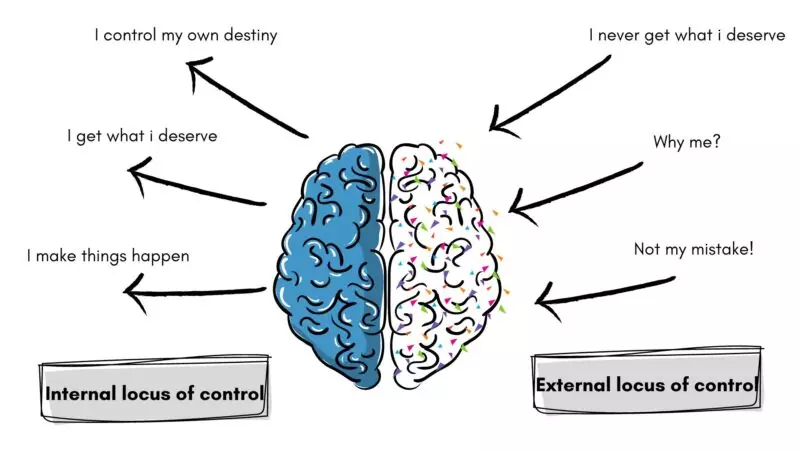Do you believe that you can determine the outcome of a challenge in your life, or do you think that you are just a victim of outside forces?
Locus of control pertains to the level of confidence an individual holds in their capacity to influence and control various outcomes.
A locus of control is a person’s belief that they have some measure of control over what happens to them in life. It can mean that you are either highly confident that you can achieve your goals and achieve success or that you tend to be more pessimistic and believe that life has a way of knocking you down, no matter how hard you try.
There are two main types of locus of control: internal locus of control and external locus of control. People with an internal locus of control believe that their own actions and decisions play a big role in shaping their lives. This means that they feel they are in charge of their lives and can influence the way things turn out. People with an external locus of control tend to believe that luck and other outside forces play a much bigger role in shaping their lives than do their own actions and decisions.
Characteristics of People With a Dominant Internal or External Locus of Control
Internal Locus of Control
- People with an internal locus of control believe that they can control their own destiny and that they are responsible for their own actions and outcomes.
- People with an internal locus of control tend to be more successful, have higher self-esteem, and be more resilient in the face of failure.
- People with an internal locus of control have a strong sense of self-efficacy and are usually more motivated, working hard to achieve their goals.
- People with an internal locus of control are less influenced by other people’s opinions
- People with an internal locus of control also tend to be physically healthier and report higher levels of happiness and independence
- People with an internal locus of control are more likely to take action and be proactive rather than reactive.
- People with an internal locus of control are more likely to persist in the face of adversity and setbacks.
External Locus of Control
- People with an external locus of control believe that their lives are controlled by outside forces such as fate, luck, or other people.
- People with an external locus of control feel that they are hopeless or powerless to change their circumstances and have a victim mentality
- People with an external locus of control may be fatalistic, feeling that whatever happens, happens
- People with an external locus of control have low self-esteem and they are more likely to be depressed and have an anxiety disorder
- People with an external locus of control may be resistant to change because they feel that they cannot control the outcome.
What Role Does Your Locus of Control Play in Your Life?
Generally, people with an internal locus of control tend to thrive. However, it is also critical to bear in mind that an internal locus of control does not always signify ‘good’ and an external locus of control does not always signify ‘poor.’ Certain contexts might benefit from an external locus of control—particularly when a situation threatens self-esteem or is outside of a person’s control.
For Example, A person with a strong Internal locus of control, who misses a career opportunity, might be devastated and feel anxious in the future. ‘I didn’t put in the effort to prepare for a job interview,’ would damage their self-esteem and cause distress.
However, if this person takes an external perspective when faced with such situations (‘I’m not fortunate enough,’ ‘Only lucky people receive good job opportunities,’ ‘Favoritism is always present in candidate selection’), they will experience less distress and turmoil.
Conclusion
Your locus of control can have a major impact on your life, from how you cope with stress to your motivation to take charge of your life. In many cases, having an internal locus of control can be a good thing. It means that you believe that your own actions have an impact. If you tend to have more of an external locus of control, you might find it helpful to start actively trying to change how you view situations and events.
Rather than viewing yourself as simply a passive bystander who is caught up in the flow of life, think about actions you can take that will have an impact on the outcome.















